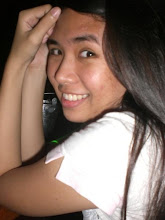
Francisco Macansantos was born on October 30, 1949 in Cotobato City. He was an AB English student at Mindanao State University and Ateneo de Zamboanga University. He took up MA Creative Writing at Siliman University. English, Literature, Philippine and Comparative Literature are some of the subjects he teaches at MSU, SU and UP Baguio. He was also a teacher of Literature in graduate school at Baguio Colleges Foundation now known as University of Cordilleras.
For so many times, he served as panelist at Dumaguete Writers Workshop where he became a fellow year 1972. He became Local Fellow for Poetry at UPICW year 1999.
He was proud to be a member of PLAC.
Some of his poetries had won Palanca Literary Awards. Because of his epic Womb of water Breasts of Earth, he won Writers Prize from NCAA.
His poetries can be read at antology A Habit of Shores, Kamao and Versus. His poetries, personal and critical essays were featured at Flippin' Filipinos that was published in U.S., in Bulawan of NCAA and almost all of leading magazines in the Philippines.
His collections of poems was entitled The Words and Othr Poems. It was released by UP Press in 1997.
At present, Mr. Macansantos is busy with writing and composing pop songs in English language.
(Source: Panitikan.com.ph: Your Portal to Philippine Literature. 2005. Web. 21 June 2009. <http://panitikan.com.ph/authors/m/fmacansantos.htm>.)
FRANCISCO SIONIL JOSE

Francisco Sionil Jose (b. Capiz 3 Dec 1924.) He is the son of Antonio Jose an Aglipayan minister, and Sofia Sionil. He is married to Maria Teresa Jovellanos with whom he has seven children. He had to help support his family at a young age raising hogs and working as a farm laborer. He studied at the Rosales Elementary School, Far Eastern University High School, and the University of Santo Tomas (UST). After WWII he took pre-medicine courses at the Manila College of Pharmacy and Dentistry, then at the UST, shifting to liberal arts later on. He was editor-in-chief of the university paper The Varsitarian . In 1947, he joined the staff of Commonwealth , a Catholic magazine. He went to work with the United States Information Service (USIS) as assistant editor. Later, Jose became managing editor of the Sunday Times Magazine , editor of Comment , and managing editor of the Hong Kong-based Asia Magazine . He founded the Philippine chapter of the PEN international organization. After working briefly in Sri Lanka as information officer for the Colombo Plan Bureau, he returned to the Philippines in 1965 and set up the Solidaridad Bookshop cum publishing firm and a short-lived art gallery in Ermita, Manila. He runs the bookshop with his wife. He is publisher and editor of Solidarity , a monthly magazine on current affairs, ideas and the arts. He has been writer-in-residence at the National University of Singapore, 1987; visiting research scholar, Center for Southeast Asian Studies, Kyoto University, 1988; and professorial lecturer, De La Salle University, 1984-1985.
Jose's first novels were serilazed in the Weekly Women's Magazine: The Chief Mourner , 1953, The Balete Tree , 1956, the second version of which was published in 1977. In 1962 he published the best known of all his novels, The Pretenders . His other novels are My Brother, My Executioner , 1979; Mass , 1982; Po-on , 1984; Ermita , 1988; and Viajero (Traveller), 1993. He has published the following short-story collections: The God Stealer and Other Stories , 1968; Selected Works , 1977; Waywaya: Eleven Filipino Short Stories , 1980; and Platinum: Ten Filipino Stories and Olvidon and Other Stories , 1988. He also wrote a novella, Two Filipino Women , 1981, and has authored a poetry collection, Questions, 1988. His writings have also appeared in literary journals and anthologies all over Asia and in American and German publications.
Jose is a multiawarded fictionist whose works have been translated into several languages: Russian, Latvian, Ukranian, Dutch, Indonesian, and Ilocano. He has won three first-prize awards in the Don Carlos Palanca Memorial Awards for Literature for the short stories, “The God Stealer,” 1959; “Waywaya,” 1979; and “Arbol de Fuego” (Firetree), 1980; a Palanca grand prize for his novel Mass , 1981; and a second prize for his essay “A Scenario for Philippine Resistance,” 1979. He also won the grand prize in the CCP Literary contests for the novel Tree , 1979; three first-prize awards from the National Press Club, 1957, 1961 and 1962; the Fernando Ma. Guerrero Memorial Foundation Award for Literature from UST, the Republic Cultural Heritage Award for Tree , and the Patnubay ng Sining at Kalinangan Award from the city government of Manila, all in 1979; the Tawid Award for Cultural Nationalism from the Ilocano Heritage Foundation, and the Ramon Magsaysay Award for journalism, literature, and creative communication arts, 1980. He also received the Smilth-Mundt Leader Grant, 1955; two Asian Foundation grants, 1955 and 1960; the Asian and Pacific Council fellowship, 1971; and the Outstanding Alumnus Award from UST, 1974. He became national Artist for Literature in 2001. –R.C. Lucero and M. Pulan.
(Source: Panitikan.com.ph: National Artist For Literature. <http://nationalartists.panitikan.com.ph/fsjose.htm>.)

